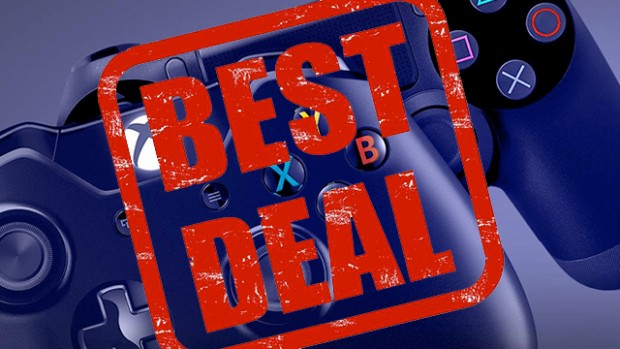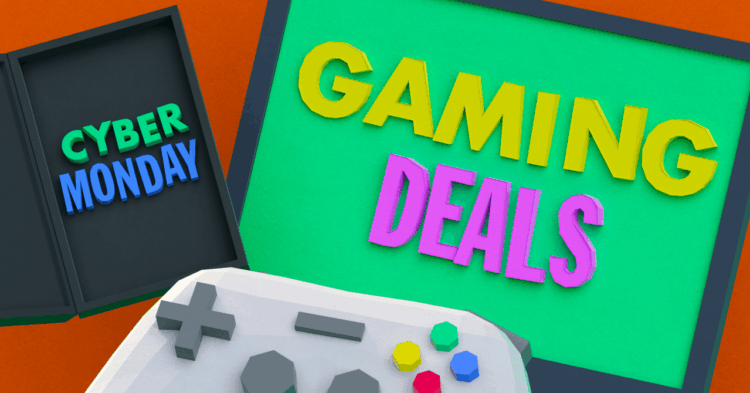The feeling of seeing a game you’ve wanted for months finally go on sale is great. But the feeling of realizing that you just missed that sale, or worse, that it was on a platform you weren’t watching, is incredibly frustrating. In the vast and ever-expanding universe of video games, deals are a constant, dynamic force. They are the lifeblood of digital storefronts and the gateway for many players to discover new adventures. In 2025, the opportunities to save money on gaming are more frequent and diverse than ever, but so is the chance to miss out. This article is not a simple list of sales you’ve already missed. Instead, it is a comprehensive guide designed to equip you with the knowledge and tools to become a savvy deal hunter, ensuring you are always in the right place at the right time. We will transform the frustration of “gaming deals you missed” into the empowerment of “gaming deals you will never miss again.”
The Anatomy of a Gaming Deal

Before you can hunt for deals, you must understand what a deal is and why it exists. Gaming deals are a carefully orchestrated part of a developer and publisher’s business strategy. They are a predictable cycle of discounts designed to achieve specific goals, from attracting new players to revitalizing an older title. Understanding this lifecycle is the first step toward becoming an expert deal finder.
A. The Different Types of Sales
Sales in the gaming industry are not all created equal. They are categorized and timed to maximize impact and reach different segments of the market.
- Seasonal Sales: These are the largest and most famous sales events. They are massive, platform-wide promotions that occur at predictable times of the year. The Steam Summer Sale and Steam Winter Sale are the most famous examples, where thousands of games are discounted simultaneously. Other major seasonal sales include Black Friday, Cyber Monday, and Halloween events. These sales are the best time to buy games you’ve had on your wishlist for a while.
- Publisher Sales: These are limited-time sales hosted by a single publisher, such as Electronic Arts, Ubisoft, or Bethesda. During a publisher sale, their entire catalog of games, from new releases to old classics, will be heavily discounted. These are fantastic opportunities to pick up a franchise’s complete collection at a fraction of the cost.
- Flash Sales: Short, aggressive discounts on a handful of titles that last for only 24 to 48 hours. They are designed to create a sense of urgency and often feature a particularly desirable game at a huge discount. To catch these, you need to be proactive and quick to act.
- New Release Promotions: A common practice where a game is discounted by 10% to 20% during its launch week. This is an incentive for early adopters and is a great way to save a little money on a brand-new title you were going to buy anyway.
- Free-to-Play Giveaways: Sometimes, a publisher will give away a game for free, permanently, to generate buzz or celebrate a milestone. The Epic Games Store is famous for its weekly free game offerings, which have allowed millions of players to build an extensive library without spending a dime.
B. The Business Reasons Behind Deals
Understanding why a game goes on sale provides valuable context. It’s not just an act of generosity; it’s a strategic move. A game’s price lifecycle is a reflection of its market position. A new game will have a high initial price to capture revenue from its most dedicated fans. As time goes on, the price will drop to attract a new wave of players who are more price-sensitive. Sales are a key tool to do this. A sale on an older game can also drive traffic and revenue to a series’s newer titles or DLC. In the case of a multiplayer game, a sale can inject a new wave of players, revitalizing the community and generating excitement.
C. The Deal Calendar: A Proactive Approach
The best deal hunters don’t just react to sales; they anticipate them. Major gaming promotions often follow a predictable yearly schedule.
- January-March: New Year Sales and Lunar New Year Sales are common on platforms like Steam and the PlayStation Store.
- April-May: Easter and Spring sales.
- June-July: The most significant event: the Steam Summer Sale. This is a massive, multi-week event that is the perfect time to clear out your wishlist.
- September-October: Back-to-School sales and publisher-specific sales.
- October-November: Halloween and Black Friday sales. Black Friday is a crucial period for both digital and physical game deals.
- December: The Steam Winter Sale and other end-of-year promotions.
The Art of the Deal Hunt

Now that you understand the cycle of deals, it’s time to equip yourself with the tools to find them. The most successful deal hunters use a multi-pronged approach, leveraging technology and community to stay ahead of the curve.
- A. Price Trackers and Aggregators: These are the most powerful tools in your arsenal. Websites and applications like IsThereAnyDeal and SteamDB track the price of games across every major digital storefront, allowing you to see a game’s entire price history. You can see the lowest price a game has ever been offered at, which is crucial for knowing if a current “deal” is truly a good one. These sites also allow you to create a personalized wishlist and will send you email alerts when a game on your list drops below a price you set. This is the single most effective way to avoid missing out.
- B. Subscribing to Newsletters and Social Media: Many digital storefronts, publishers, and gaming news outlets have newsletters and social media accounts dedicated to deals. By following them, you will receive real-time updates on flash sales and limited-time promotions. Websites like IGN, PC Gamer, and others often have dedicated deal sections that are updated daily.
- C. The Power of Community: Online communities are a goldmine for deal information. Subreddits like r/gamedeals or dedicated Discord servers are filled with thousands of users who share every new deal they find. The community is often faster than any automated tool, and they will highlight hidden sales or promotions that might not be widely advertised.
- D. Using Your Wishlist: This seems obvious, but it’s an incredibly effective tool. Every major digital storefront, from Steam to the Xbox Store, has a wishlist feature. Populate your wishlist with every game you are even remotely interested in. When a major sale starts, you will receive an immediate notification showing you which games on your list are on sale and by how much. This is the simplest way to stay on top of deals.
Beyond the Digital Storefronts
Gaming deals are not just found on digital storefronts. A savvy gamer knows to look for value in other places as well, from subscription services to game bundles.
- A. The Value of Subscription Services: Services like Xbox Game Pass and PlayStation Plus are, in a way, the ultimate deal. For a flat monthly fee, you get access to a massive library of games, including new first-party releases on launch day. While you don’t own the games, you can play them for as long as your subscription is active. This is an incredible way to play a variety of games without spending a lot of money.
- B. Game Bundles: Websites like Humble Bundle and Fanatical offer game bundles at incredibly low prices. For a few dollars, you can get a collection of games, often with a theme (e.g., a bundle of all the games from a specific publisher). A portion of the proceeds from these bundles often goes to charity, so it’s a great way to save money while supporting a good cause.
- C. The Physical and Used Market: While digital is king, the physical market still has its place. Retailers often have steep discounts on physical copies of games. The used market, in particular, can offer games at prices far lower than any digital sale.
Conclusion
The phrase “gaming deals you missed” is a relic of a bygone era. In 2025, with a proactive strategy and the right tools, no gamer should ever feel the frustration of a missed opportunity again. The secret to becoming a smart consumer in the gaming world is not about luck; it’s about being prepared. By leveraging price trackers, subscribing to relevant communities, and utilizing your wishlist, you can transform the frantic hunt for deals into a calm, systematic process. The gaming industry’s business model is built on predictable sales cycles, and by understanding this cycle, you can anticipate when the best deals will happen.
Ultimately, your gaming journey is an investment in your enjoyment. The money you save on games can be used to upgrade your hardware, purchase new accessories, or simply allow you to play more games than you ever thought possible. By embracing the art of the deal hunt, you are not just saving money; you are becoming a more informed and empowered gamer, one who can confidently navigate the vast digital landscape and always find the best deals.











